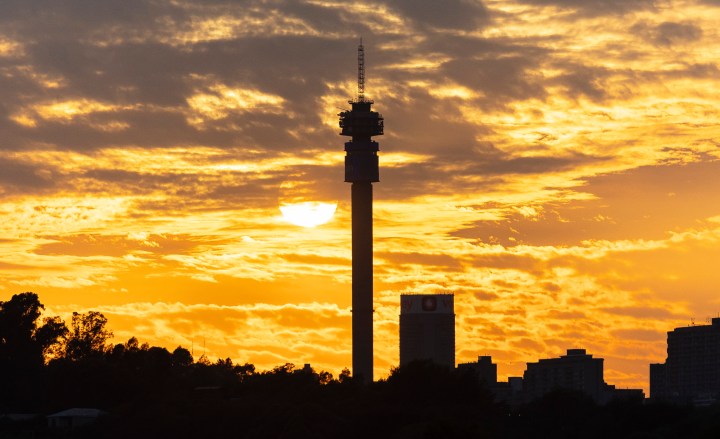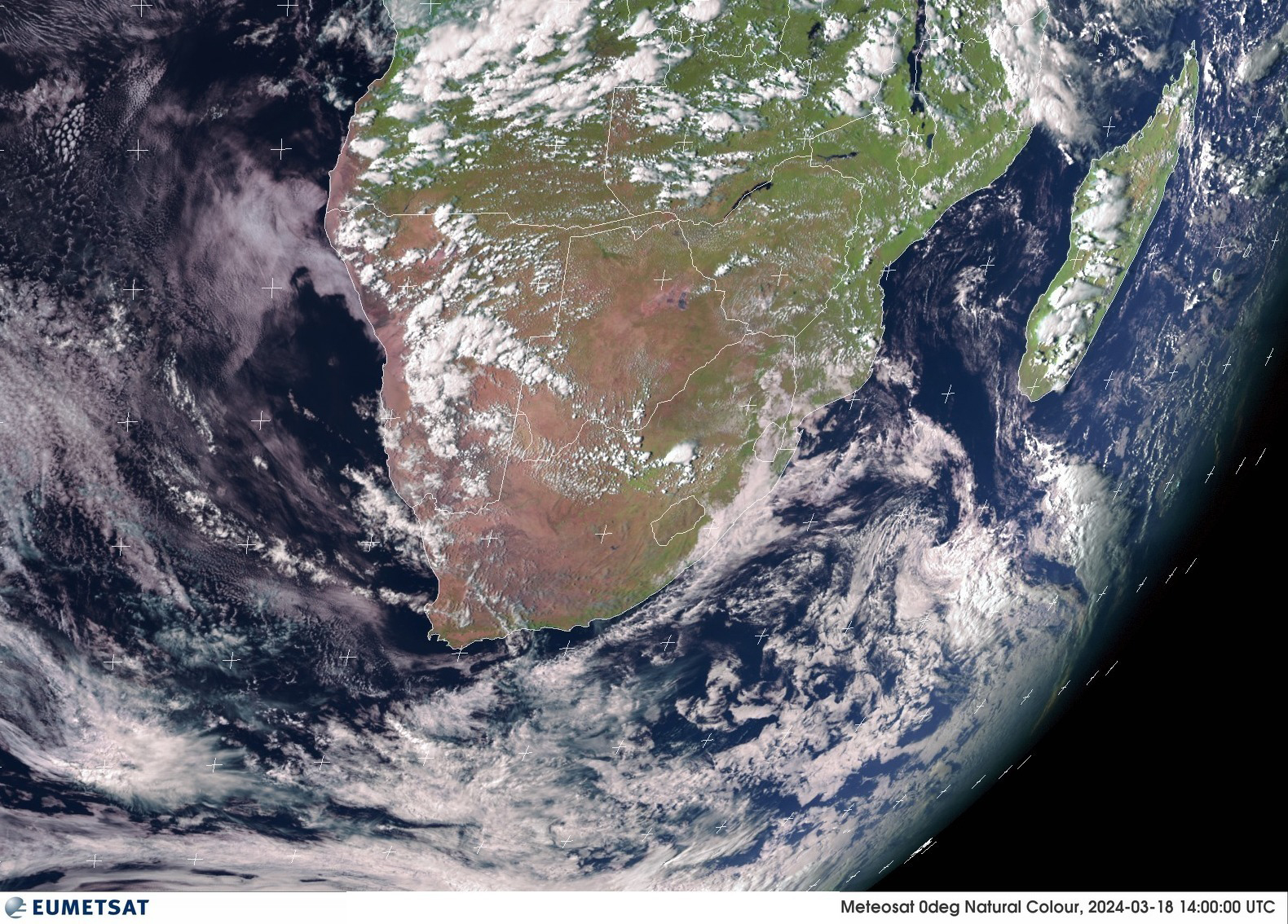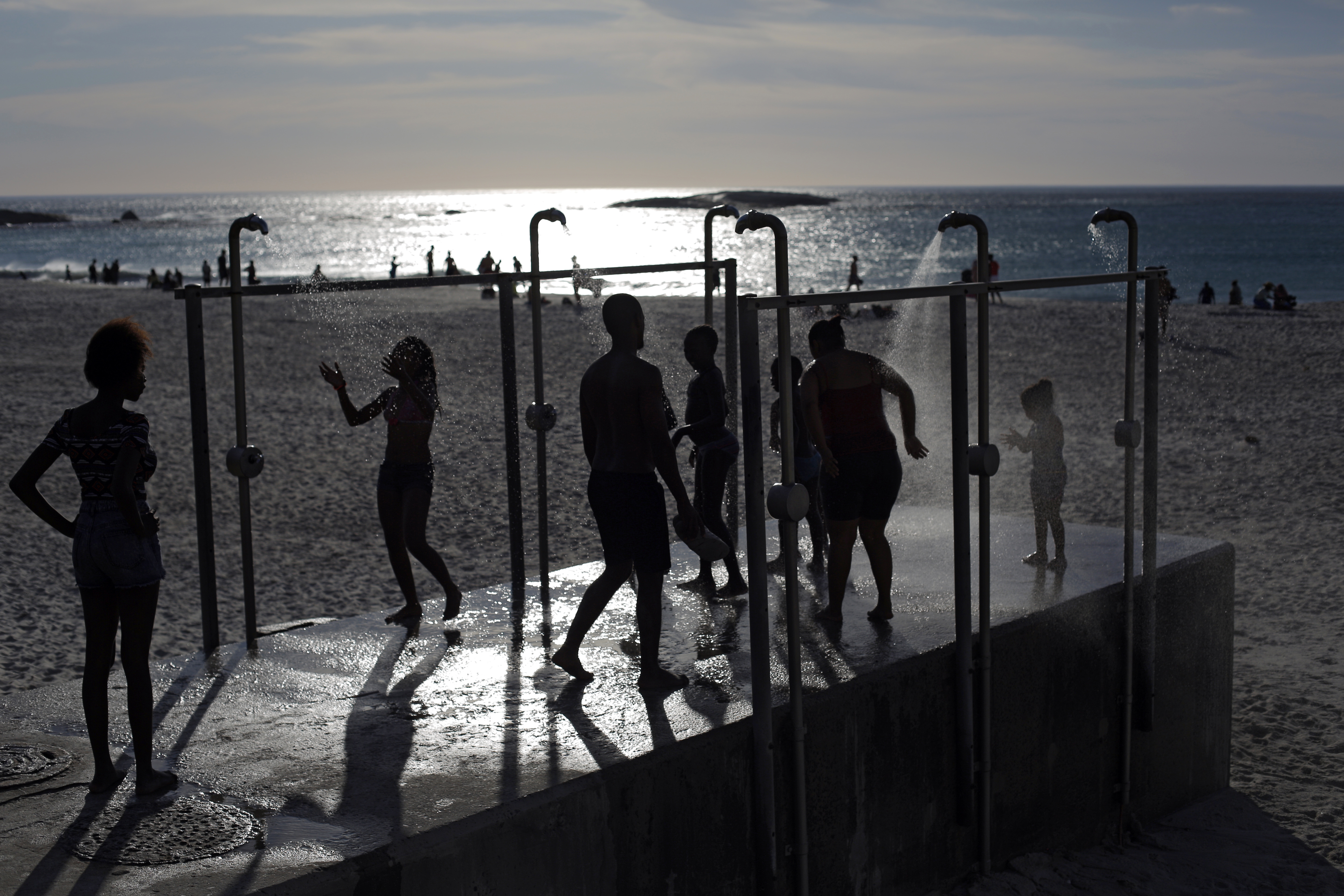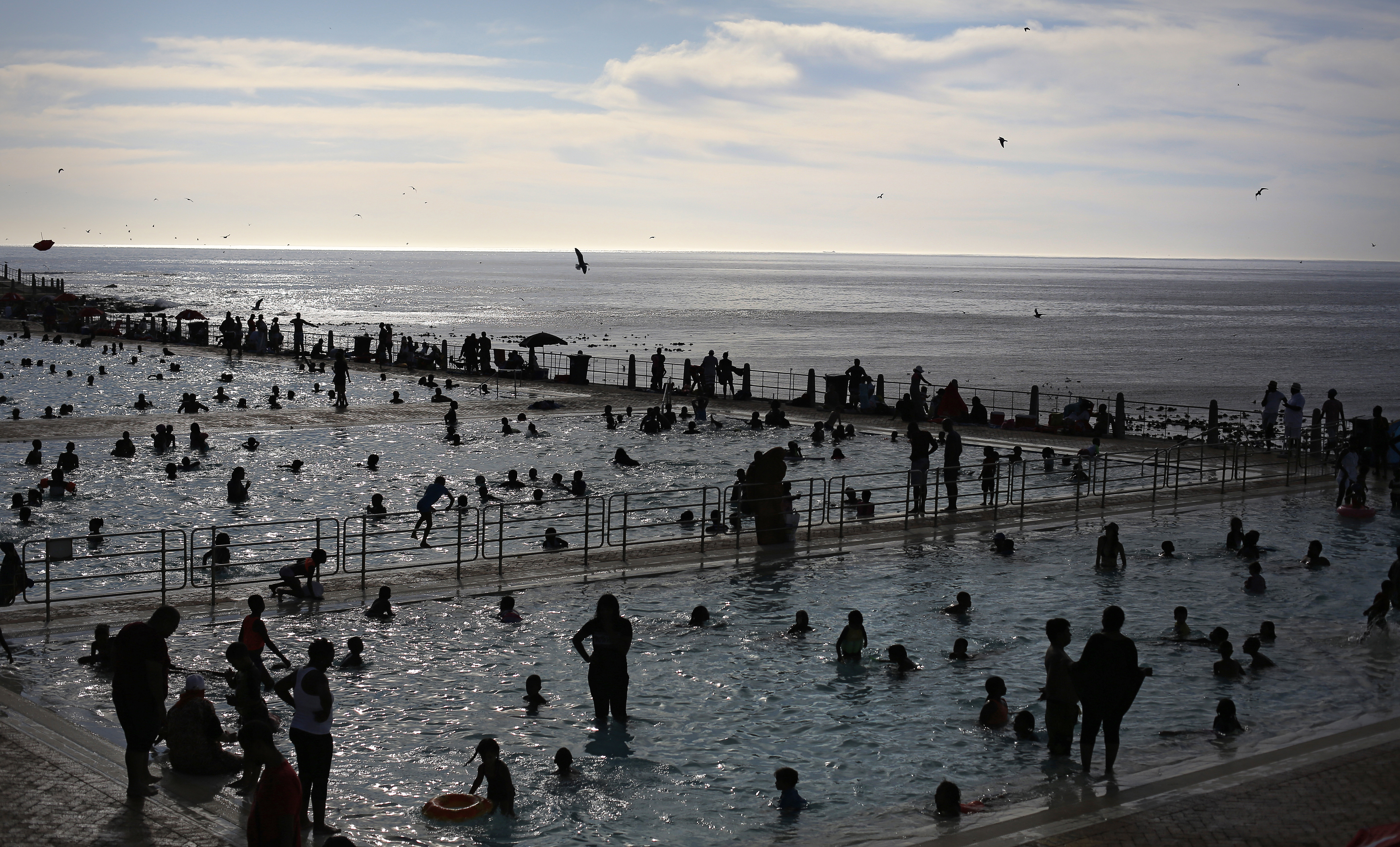EXTREME WEATHER WOES
‘Heatwaves are going to get worse, like nothing we’ve ever seen before’ — SA climatologist

The oppressive heat that has persisted in parts of South Africa over the past few weeks is neither unusual for this time of year, nor during El Niño. However, climate change is making heatwaves more frequent and severe, and making the impact of El Niño more intense.
‘Every now and then, I still hear the argument that we don’t know enough about future climate change, and there is uncertainty in the climate model. That’s complete nonsense,” said Professor Francois Engelbrecht, a climatologist and director of the Global Change Institute (GCI) at Wits University.
“We know many things about the future that are already manifesting, that should lead us to immediate climate action. One of these is heatwaves.”
Since the beginning of March, there have been heatwaves on most days over the central to northeastern interior of the country, according to the SA Weather Service (Saws).
Dr Christien Engelbrecht, a meteorologist at Saws, told Daily Maverick that the heatwaves began in February and the highest temperatures were recorded at the weekend, when multiple highest maximum temperature records were broken in towns across the northeastern interior.

Satellite image of southern Africa on Monday, 18 March 2024. Dr Peter Johnston said we would typically see more green, representing vegetation, in the summer rainfall regions of South Africa at this time of year, but El Niño often causes dry conditions in these areas, with the result that there is less vegetative growth than during a wetter year. (Source: European Organisation for the Exploitation of Meteorological Satellites)
On Sunday, Saws’ Unisa station in Pretoria, which has been operating for 30 years, recorded a record-breaking 36.1°C. The Rustenburg station in North West, which has been operating for 32 years, recorded 37.9°C, breaking a record set in 1999.
The Welkom station in Free State, in operation for 49 years, reached 38°C on Sunday, shattering the record set in 2007.
It was Augrabies Falls in the Northern Cape that took the cake though, reaching 44.9°C on Monday.
El Niño or climate change?
“We are warming, it’s unequivocal, it’s happening, it’s causing impacts,” Dr Peter Johnston, a climate scientist at the Climate System Analysis Group at UCT, told Daily Maverick in December.
Read More in Daily Maverick: Too damn hot — what to expect as global climate crisis heats up in 2024
But is the heat we’re experiencing now normal, or an impact of climate change?
Johnston said that SA generally gets very high temperatures in February and the first two weeks of March.
Both Dr Andries Kruger, the chief scientist of climate services at Saws, and the GCI’s Engelbrecht said that what South Africa experienced this summer was not unusual for an El Niño season (which we are in now).
El Niño is typically associated with warmer and drier conditions over the areas of SA that receive summer rainfall.
Engelbrecht explained that the heatwaves SA was experiencing were typical during El Niño, which sees big high-pressure systems form over southern Africa, which suppress rainfall, causing more sunlight to reach the surface.
But while El Niño and La Niña are naturally occurring phenomena — they would occur even if humans didn’t exist — Johnston explained that because global warming makes the whole globe hotter, there’s more heat in the atmosphere and the oceans.
This, combined with the impacts of El Niño, creates an even bigger warming effect
The Intergovernmental Panel on Climate Change’s (IPCC’s) 2021 report warned that the impacts of El Niño and La Niña would become more intense for as long as the climate continued to warm.

People cool down under public showers on the Camps Bay beachfront at sunset after a hot day in Cape Town, South Africa, 16 January 2016. (Photo: EPA / Kim Ludbrook)
“This is really the issue,” said Johnston, “that these series of very hot days in months where we don’t normally have very hot days are going to continue.”
Engelbrecht said there was evidence across the world that heatwaves were increasing in frequency and intensity, which could be directly attributed to global warming.
“We are seeing clear evidence that heatwave occurrences have already increased in this part of the world over the last 40 years or so,” he said.
“And the climate models are clear that in the next 20 years, we will see further unprecedented events in terms of heatwave duration and intensity across southern Africa. This is one of the things of climate change that we have complete confidence in.
Health impacts
“Heatwaves, of course, impact many sectors, including agriculture, water and health,” said Engelbrecht, noting the January 2022 heatwave in the Northern Cape that killed seven farmworkers.
Dr Caradee Wright, chief specialist scientist of the Environmental and Health Unit at the South African Medical Research Council (SAMRC), said that over the past few weeks, SA had experienced oppressive heat, which is linked to heat exhaustion, heat cramps, dehydration and heat stroke, which requires hospitalisation and may lead to death.
Christopher Trisos, a senior researcher at the African Climate and Development Initiative at UCT, said the IPCC’s sixth assessment report found that recent estimates suggested human-induced climate change was responsible for about 44% of the roughly 20,000 heat-related deaths in South Africa since 1991.

Crowds pack a public swimming pool in Sea Point as the sun sets on a hot day in Cape Town. (Photo: EPA / Kim Ludbrook)
Wright, who is also the SAMRC’s lead of climate change and human health research programme, said that during periods of intense heat or heatwaves, it was important to follow some simple steps:
- “Drink lots of water;
- Stay in the shade;
- Wear loose clothing;
- Keep an eye on infants, children and the elderly who are especially vulnerable to heat impacts;
- Put a wet face-cloth on the back of your neck;
- Frequently place your hands and feet in a shallow basin of water; and
- Draw a curtain to prevent direct sunlight from coming into a room.”
Hottest February (and 12 months) on record
Last month marked the hottest February ever recorded globally.
Data from the EU’s Copernicus Climate Change Service showed that February 2024 was 1.77°C warmer than the pre-industrial average (1850 to 1900) for the month, and 0.81°C above the 1991-2020 average for the month.
In terms of SA, Kruger said that February temperatures were above normal in the central and eastern parts of SA, about 1°C above the 1991-2020 average and about 2°C above the 1981-2010 average.
This doesn’t mean that every day in February was 1°C warmer, but that some days were normal, with a few peak high temperatures (sometimes 3°C or 4°C above the average).
And for March, both Kruger and Saws’ Engelbrecht said that while it was too early to make an assessment (the analysis will only be done at the beginning of April), the expectation is that this month will have more heatwave days than normal for the central interior.
The hottest month in history was the culmination of the hottest 12 months ever recorded — between March 2023 and February 2024 the average temperature was 1.56°C above the pre-industrial average.
The IPCC 2018 report warned that climate-related risks for natural and human systems were higher for global warming from 1.5°C.
However, we haven’t reached that threshold yet. GCI’s Engelbrecht — who was one of the many international scientists who assessed thousands of peer-reviewed studies to compile the 2018 IPCC report — explained that although the 1.5°C threshold had been exceeded for 12 months, this was not enough time for it to be regarded as permanent.
The global average temperature has to exceed the 1.5°C threshold for 20 years to be considered permanent. The report said that the best estimate for when that would occur was early 2030.
We need to prepare
As Johnston said, and as many climate models have predicted, “We are warming; it is unequivocal.”
We need to prepare.
“It’s life-threatening to work in a heatwave like this — especially if you have certain comorbidity,” Engelbrecht said, adding that vulnerable groups in South Africa included older people and those living in informal settlements.
“We need to look after our farmworkers much more carefully,” Engelbrecht said. “These heatwaves are going to get worse, like nothing we’ve ever seen before.” DM





















 Become an Insider
Become an Insider
Strange that we haven’t had Ben Harper’s 5AM denigration of anything even tangentially linked to climate change. I suppose El Nono is one of the things he chooses to believe. Or could it be that it’s easy to deride (without providing evidence) scientists and politicians, but less so thermometers, satellite photos, firefighters and farmers?
Well, anyone can deny anything at all. That’s what contemporary “social” ‘groups’ have done, it has reduced all of us to the lowest common denominator, or to express it less politely, we are all reduced to the level of idiocy. Anyone with a keyboard can make any claim whatsoever, no matter how ludicrous or harmful, providing zero proof for their claims.
The fact is, our best scientists across the world have deduced that anthropogenic climate change (human-induced climate change) is one of the greatest threats to human survival on planet Earth.
One can deny it all one wants, it does not change the expert deduction of thousands of our best scientists that combustion activities by human are driving up the Earth’s temperature to dangerous levels.
It is by now no longer “a debate.” It is irrefutable, except to the most foolhardy of our species.
Except that there are thousands of climate scientists who do NOT agree with the sentiments expressed in the article. So it is not that cut and dried.
We don’t need scientists to tell us that the Earth is heating up. Anyone with a functioning brain will see how weather patterns are rapidly changing with more frequent storms, tornadoes and hurricanes and wildfires, as well as heatwaves, dry spells and torrential downpours. Ask the insurance companies about the increase in claims for these phenomena. I would ask the question who pays these denialists for their reports? Perhaps the oil companies and others of their ilk?
Who’s to blame, we are, the uncontrolled breeding has put such a strain on resources that the planet can not cope. THE LIFE BOAT IS SINKING
Which SA political party is most likely to address global warming effectively?
Not one political party,they are obsessed with getting rid of each other than dealing with challenges faced by the population.
They all make promises to mask their true intentions, no wonder they are funded by the same people who will get their payback once they are in power.